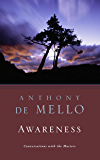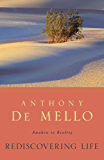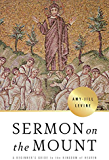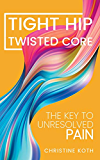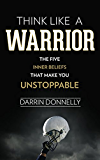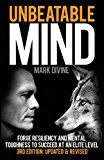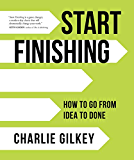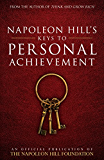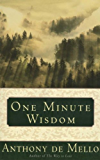Buying Options
| Print List Price: | $9.99 |
| Kindle Price: |
$8.99
Save $1.00 (10%) |
| Sold by: |
Random House LLC
Price set by seller. |

Add to book club
Loading your book clubs
There was a problem loading your book clubs. Please try again.
Not in a club?
Learn more


Join or create book clubs

Choose books together

Track your books
Bring your club to Amazon Book Clubs, start a new book club and invite your friends to join, or find a club that’s right for you for free.

![The Way to Love: Meditations for Life by [Anthony de Mello, SJ]](http://web.archive.org./web/20201207230053im_/https://m.media-amazon.com/images/I/41WPW8FkMVL._SY346_.jpg)
Follow the Author
Something went wrong. Please try your request again later.
OK
The Way to Love: Meditations for Life Kindle Edition
See all formats and editions
Hide other formats and editions
|
Price
|
New from | Used from |
|
Audible Audiobook, Unabridged
"Please retry"
|
Free with your Audible trial | ||
Enter your mobile number or email address below and we'll send you a link to download the free Kindle App. Then you can start reading Kindle books on your smartphone, tablet, or computer - no Kindle device required.
-
Apple

-
Android

-
Windows Phone

-
Android

|
Download to your computer
|
Kindle Cloud Reader
|
Customers who bought this item also bought
Page 1 of 1 Start overPage 1 of 1
-
 Direct Truth: Uncompromising, non-prescriptive Truths to the enduring questions of lifeKapil GuptaKindle Edition
Direct Truth: Uncompromising, non-prescriptive Truths to the enduring questions of lifeKapil GuptaKindle Edition
Products related to this item
Page 1 of 1Start overPage 1 of 1
Amazon Business : For business-only pricing, quantity discounts and FREE Shipping. Register a free business account
Editorial Reviews
Excerpt. © Reprinted by permission. All rights reserved.
Introduction
Years ago, when I first heard of Tony de Mello, S.J., I didn’t believe what I heard. The story I am about to tell has bearing on the book you are about to read.
I was told that Tony gave a retreat to sixty fellow Jesuit priests and spoke to them six hours a day for eight days. I remember saying, “No Jesuit listens to another Jesuit six hours a day for eight days.” When the fact was insisted on, I remember asking, “Who made that retreat?” The names of some very impressive Jesuits (impressive, at least, to me) were mentioned. It was then, like doubting Thomas in the Scriptures, I said, “This I have to see and hear for myself.”
Thus began the journey with the man who would affect my life so profoundly that, years later, I wouldn’t even recognize the person I was those years past. And not I alone, but thousands of others like me.
The occasion of my first meeting Tony de Mello now seems rather prosaic. He was asked to give a weekend retreat to a group of lay people. He agreed to do this on his way back to India from Rome. I asked to be put on that retreat just to meet and experience the man. It was an unforgettable weekend up in Saddle River, New Jersey, amid the snows of February.
I will never forget the feeling of liberation; the sense he made of spirituality, of prayer, of the meaning of life; his humor; his marvelous storytelling. And it was all done in such a personal style. Years later, when he was speaking by television satellite to more than three thousand college students, he maintained that personal style. “About twelve years ago,” he remarked, “I discovered something that revolutionized my life.” He had met a rickshaw driver in Calcutta named Rinsai, who, although he was dying of a painful disease and was so poor that he had to sell his skeleton before he died, still was a man filled with faith and interior joy. “I suddenly realized,” Tony continued, “I was in the presence of a mystic who had rediscovered life. He was alive; I was dead. He was a man who had reincarnated himself during this life.”
The reason I say that the story of my meeting Tony has bearing on the book you are about to read is because when I came upon this manuscript, although I was very familiar with all that he had written (and spoken), I was amazed at how these small but powerful “meditations” evoked in me the same feelings I experienced when I first encountered him. Just reading through these pages brought back the wonderful sense of challenge, the spiritual provocation that Tony was such a master at providing. There was a basic honesty in Tony de Mello’s character with which he reevaluated everything in his own life. And it was this honesty that he communicated so effectively to all who would listen. His analogies, his stories, his telling criticism of sacred cows—all brilliantly peppered throughout this book—inspired in me a like revaluation of my own life, and I have never regretted it.
Take each one of these meditations and carry them with you throughout your day. Challenge his ideas, mull over his thoughts, and then be silent. You will notice an effortless transformation taking place in your heart, the awakening experience of insight, the wonderful peace you experience when you gaze at the stars or watch a beautiful sunrise or glimpse a soft look of love in the eyes of your beloved. This is the effect these spiritual gems will have. All you need bring to them is a full heart and an inquiring mind.
J. Francis Stroud, S.J. The Center for Spiritual Exchange Fordham University Bronx, N.Y.
Profit and Loss
For what will it profit a man, if he
gains the whole world and forfeits
his life?
—Matthew 16:26
Recall the kind of feeling you have when someone praises you, when you are approved, accepted, applauded. And contrast that with the kind of feeling that arises within you when you look at the sunset or the sunrise or Nature in general, or when you read a book or watch a movie that you thoroughly enjoy. Get the taste of this feeling and contrast it with the first, namely, the one that was generated within you when you were praised. Understand that the first type of feeling comes from self-glorification, self-promotion. It is a worldly feeling. The second comes from self-fulfillment, a soul feeling.
Here is another contrast: Recall the kind of feeling you have when you succeed, when you have made it, when you get to the top, when you win a game or a bet or an argument. And contrast it with the kind of feeling you get when you really enjoy the job you are doing, you are absorbed in, the action that you are currently engaged in. And once again notice the qualitative difference between the worldly feeling and the soul feeling.
Yet another contrast: Remember what you felt like when you had power, you were the boss, people looked up to you, took orders from you; or when you were popular. And contrast that worldly feeling with the feeling of intimacy, companionship—the times you thoroughly enjoyed yourself in the company of a friend or with a group in which there was fun and laughter.
Having done this, attempt to understand the true nature of worldly feelings, namely, the feelings of self-promotion, self-glorification. They are not natural, they were invented by your society and your culture to make you productive and to make you controllable. These feelings do not produce the nourishment and happiness that is produced when one contemplates Nature or enjoys the company of one’s friends or one’s work. They were meant to produce thrills, excitement—and emptiness.
Then observe yourself in the course of a day or a week and think how many actions of yours are performed, how many activities engaged in that are uncontaminated by the desire for these thrills, these excitements that only produce emptiness, the desire for attention, approval, fame, popularity, success or power.
And take a look at the people around you. Is there a single one of them who has not become addicted to these worldly feelings? A single one who is not controlled by them, hungers for them, spends every minute of his/her waking life consciously or unconsciously seeking them? When you see this you will understand how people attempt to gain the world and, in the process, lose their soul. For they live empty, soulless lives.
And here is a parable of life for you to ponder on: A group of tourists sits in a bus that is passing through gorgeously beautiful country; lakes and mountains and green fields and rivers. But the shades of the bus are pulled down. They do not have the slightest idea of what lies beyond the windows of the bus. And all the time of their journey is spent in squabbling over who will have the seat of honor in the bus, who will be applauded, who will be well considered. And so they remain till the journey’s end.
Discipleship
If anyone comes to me and does not hate his own father and mother and wife and children and brothers and sisters, yes, and even his own life, he cannot be my disciple.
—Luke 14:26
Take a look at the world and see the unhappiness around you and in you. Do you know what causes this unhappiness? You will probably say loneliness or oppression or war or hatred or atheism. And you will be wrong. There is only one cause of unhappiness: the false beliefs you have in your head, beliefs so widespread, so commonly held, that it never occurs to you to question them. Because of these false beliefs you see the world and yourself in a distorted way. Your programming is so strong and the pressure of society so intense that you are literally trapped into perceiving the world in this distorted kind of way. There is no way out, because you do not even have a suspicion that your perception is distorted, your thinking is wrong, and your beliefs are false.
Look around and see if you can find a single genuinely happy person—fearless, free from insecurities, anxieties, tensions, worries. You would be lucky if you found one in a hundred thousand. This should lead you to be suspicious of the programming and the beliefs that you and they hold in common. But you have also been programmed not to suspect, not to doubt, just to trust the assumptions that have been put into you by your tradition, your culture, your society, your religion. And if you are not happy, you have been trained to blame yourself, not your programming, not your cultural and inherited ideas and beliefs. What makes it even worse is the fact that most people are so brainwashed that they do not even realize how unhappy they are—like the man in a dream who has no idea he is dreaming.
What are these false beliefs that block you from happiness? Here are some examples. First: You cannot be happy without the things that you are attached to and that you consider so precious. False. There is not a single moment in your life when you do not have everything that you need to be happy. Think of that for a minute. The reason why you are unhappy is because you are focusing on what you do not have rather than on what you have right now.
Another belief: Happiness is in the future. Not true. Right here and now you are happy and you do not know it because your false beliefs and your distorted perceptions have got you caught up in fears, anxieties, attachments, conflicts, guilt and a host of games that you are programmed to play. If you would see through this you would realize that you are happy and do not know it.
Yet another belief: Happiness will come if you manage to change the situation you are in and the people around you. Not true. You stupidly squander so much energy trying to rearrange the world. If changing the world is your vocation in life, go right ahead and change it, but do not harbor the illusion that this is going to make you happy. What makes you happy or unhappy is not the world and the people around you, but the thinking in your head. As well search for an eagle’s nest on the bed of an ocean, as search for happiness in the world outside of you. So if it is happiness that you seek you can stop wasting your energy trying to cure your baldness or build up an attractive body or change your residence or job or community or lifestyle or even your personality. Do you realize that you could change every one of these things, you could have the finest looks and the most charming personality and the most pleasant of surroundings and still be unhappy? And deep down you know this is true but still you waste your effort and energy trying to get what you know cannot make you happy.
Another false belief: If all your desires are fulfilled you will be happy. Not true. In fact it is these very desires and attachments that make you tense, frustrated, nervous, insecure and fearful. Make a list of all your attachments and desires and to each of them say these words: “Deep down in my heart I know that even after I have got you I will not get happiness.” And ponder on the truth of those words. The fulfillment of desire can, at the most, bring flashes of pleasure and excitement. Don’t mistake that for happiness.
What then is happiness? Very few people know and no one can tell you, because happiness cannot be described. Can you describe light to people who have been sitting in darkness all their lives? Can you describe reality to someone in a dream? Understand your darkness and it will vanish; then you will know what light is. Understand your nightmare for what it is and it will stop; then you will wake up to reality. Understand your false beliefs and they will drop; then you will know the taste of happiness.
If people want happiness so badly, why don’t they attempt to understand their false beliefs? First, because it never occurs to them to see them as false or even as beliefs. They see them as facts and reality, so deeply have they been programmed. Second, because they are scared to lose the only world they know: the world of desires, attachments, fears, social pressures, tensions, ambitions, worries, guilt, with flashes of the pleasure and relief and excitement which these things bring. Think of someone who is afraid to let go of a nightmare because, after all, that is the only world he knows. There you have a picture of yourself and of other people.
If you wish to attain to lasting happiness you must be ready to hate father, mother, even your own life and to take leave of all your possessions. How? Not by renouncing them or giving them up because what you give up violently you are forever bound to. But rather by seeing them for the nightmare they are; and then, whether you keep them or not, they will have lost their grip over you, their power to hurt you, and you will be out of your dream at last, out of your darkness, your fear, your unhappiness.
So spend some time seeing each of the things you cling to for what it really is, a nightmare that causes you excitement and pleasure on the one hand but also worry, insecurity, tension, anxiety, fear, unhappiness on the other.
Father and mother: nightmare. Wife and children, brothers and sisters: nightmare. All your possessions: nightmare. Your life as it is now: nightmare. Every single thing you cling to and have convinced yourself you cannot be happy without: nightmare. Then you will hate father and mother, wife and children, brothers and sisters and even your own life. And you will so easily take leave of all your possessions, that is, you will stop clinging and thus have destroyed their capacity to hurt you. Then at last you will experience that mysterious state that cannot be described or uttered—the state of abiding happiness and peace. And you will understand how true it is that everyone who stops clinging to brothers or sisters, father, mother or children, land or houses . . . is repaid a hundred times over and gains eternal life. --This text refers to an alternate kindle_edition edition.
From the Publisher
The Way To Love contains the final flowering of Anthony de Mello's thought, and in it he grapples with the ultimate question of love. In thirty-one meditations, he implores his readers with his usual pithiness to break through illusion, the great obstacle to love. "Love springs from awareness," de Mello insists, saying that it is only when we see others as they are that we can begin to really love. But not only must we seek to see others with clarity, we must examine ourselves without misconception. The task, however, is not easy. "The most painful act," de Mello says, "is the act of seeing. But in that act of seeing that love is born." Anthony De Mello was the director of the Sadhana Institute of Pastoral Counseling in Poona, India, and authored several books. The Way To Love is his last.
--This text refers to an alternate kindle_edition edition.
From the Inside Flap
The Way To Love contains the final flowering of Anthony de Mello's thought, and in it he grapples with the ultimate question of love. In thirty-one meditations, he implores his readers with his usual pithiness to break through illusion, the great obstacle to love. "Love springs from awareness," de Mello insists, saying that it is only when we see others as they are that we can begin to really love. But not only must we seek to see others with clarity, we must examine ourselves without misconception. The task, however, is not easy. "The most painful act," de Mello says, "is the act of seeing. But in that act of seeing that love is born." Anthony De Mello was the director of the Sadhana Institute of Pastoral Counseling in Poona, India, and authored several books. The Way To Love is his last.
--This text refers to an alternate kindle_edition edition.
From the Back Cover
"The Way To Love contains the final flowering of Anthony de Mello's thought, and in it he grapples with the ultimate question of love. In thirty-one meditations, he implores his readers with his usual pithiness to break through illusion, the great obstacle to love. "Love springs from awareness," de Mello insists, saying that it is only when we see others as they are that we can begin to really love. But not only must we seek to see others with clarity, we must examine ourselves without misconception. The task, however, is not easy. "The most painful act," de Mello says, "is the act of seeing. But in that act of seeing that love is born." Anthony De Mello was the director of the Sadhana Institute of Pastoral Counseling in Poona, India, and authored several books. "The Way To Love is his last.
--This text refers to an alternate kindle_edition edition.
About the Author
Anthony deMello was a Jesuit Priest known throughout the world for his writings and spiritual conferences. He died suddenly in 1987. Among his many books are Sadhana and The Song of the Bird.
--This text refers to an alternate kindle_edition edition.
Product details
- Publication date : August 31, 2011
- File size : 963 KB
- Word Wise : Enabled
- Print length : 170 pages
- Publisher : Image (August 31, 2011)
- Language: : English
- ASIN : B005GFBNSW
- Enhanced typesetting : Enabled
- X-Ray : Enabled
- Screen Reader : Supported
- Text-to-Speech : Enabled
- Lending : Not Enabled
-
Best Sellers Rank:
#23,452 in Kindle Store (See Top 100 in Kindle Store)
- #9 in Spiritual Meditations (Kindle Store)
- #15 in Spiritual Devotionals
- #24 in New Age Meditation
- Customer Reviews:
Related video shorts (0)
Upload your video
Be the first video
Your name hereProducts related to this item
Page 1 of 1Start overPage 1 of 1
Customer reviews
4.7 out of 5 stars
4.7 out of 5
782 global ratings
How are ratings calculated?
To calculate the overall star rating and percentage breakdown by star, we don’t use a simple average. Instead, our system considers things like how recent a review is and if the reviewer bought the item on Amazon. It also analyzes reviews to verify trustworthiness.
Top reviews
Top reviews from the United States
There was a problem filtering reviews right now. Please try again later.
Reviewed in the United States on July 20, 2016
Comment
Report abuse
Verified Purchase
This is the most amazing book! It has changed my life and made a better person. I am reading it as a daily devotion/centering time. It is written by a Jesuit priest and has scripture as the chapter titles, but I think non-Christians would still love it. What he writes about is buddhist in nature... detachment, letting go of outcomes... it calls me to be a better person with less anxiety. In these turbulent times, i really think it is a relevant book!
38 people found this helpful
Helpful
Reviewed in the United States on May 2, 2020
Verified Purchase
"I leave you free to be yourself, to think your thoughts, to indulge your taste, follow your inclinations, behave in any way you decide is to your liking." -Anthony de Mello p. 35
I recite this meditation now in all my encounters no matter who it is. This perspective on life and love that Anthony de Mello encourages us to open our eyes to--where you truly see things and people as they are and just appreciate however long they're meant to be in your life--just FREES you from any form of possession, guilt, control, etc.
In 31 short, bite-sized chapters, Anthony de Mello takes readers on various paths to discover how to and what it means to truly love in the most pure, raw, unbridled way. "You see people and things not as they are, but as you are." I'm sure these types of easier-said-than-done-ideas are not unfamiliar to most people and that they have been echoed in some way, shape, or form to us in various other self-help/spiritual guide books. However, this is not just another self-help/spiritual guide book. Anthony de Mello presents these ideas in such a concise, honest, and straightforward manner that you can't help but allow yourself to be beaten the life into. No sugar-coating. No coddling. This little pocket book of love is that friend you need who tells you what you need to hear and tells it exactly as it is. De Mello presents his ideas and the reasoning to corroborate them in such a no-nonsense way that it makes it nearly impossible for his messages to not penetrate to some extent. This book is also written in a way where you could easily just open it up to any chapter, and take what you need from it. I breezed through it in a single sitting the first time I sat down with it, but now I understand that its chapters are meant to be nipped at, digested, regurgitated, digested again, and repeat...a million times over.
Initially I was rather skeptical to read this book since its genre was listed under "Christian literature" as I thought I wouldn't be able to comprehend or fully appreciate the references to Scripture or theocracy. Admittedly, I also had my own reservations that this book might be too preachy or come off as an attempt to indoctrinate readers. I was wrong. One barely even notices the few biblical references he includes, and they only serve to further echo the beautifully conveyed messages he communicates. In fact, most of the metaphors he uses to illustrate his points are references to nature. For example, he explains how we should be like a rose or a tree in the way we love because, like love, the fragrance of a rose and the shade of a tree simply ARE and exist regardless of whether someone will benefit from them or not.
This book came at such a pivotal moment in my life where I've only recently begun to truly understand myself, how I'm wired to think, and why I act the way I do. The process to understanding oneself is a life-long journey though, so I have no doubt that for years to come I'll be cracking the pages of this little book open while I'm waiting in line at a coffee shop, first thing on lazy mornings, before I settle in for bed, or just whenever I need a little refresher. A must-read for anyone who wants to understand love, life, or just humanness in general.
I recite this meditation now in all my encounters no matter who it is. This perspective on life and love that Anthony de Mello encourages us to open our eyes to--where you truly see things and people as they are and just appreciate however long they're meant to be in your life--just FREES you from any form of possession, guilt, control, etc.
In 31 short, bite-sized chapters, Anthony de Mello takes readers on various paths to discover how to and what it means to truly love in the most pure, raw, unbridled way. "You see people and things not as they are, but as you are." I'm sure these types of easier-said-than-done-ideas are not unfamiliar to most people and that they have been echoed in some way, shape, or form to us in various other self-help/spiritual guide books. However, this is not just another self-help/spiritual guide book. Anthony de Mello presents these ideas in such a concise, honest, and straightforward manner that you can't help but allow yourself to be beaten the life into. No sugar-coating. No coddling. This little pocket book of love is that friend you need who tells you what you need to hear and tells it exactly as it is. De Mello presents his ideas and the reasoning to corroborate them in such a no-nonsense way that it makes it nearly impossible for his messages to not penetrate to some extent. This book is also written in a way where you could easily just open it up to any chapter, and take what you need from it. I breezed through it in a single sitting the first time I sat down with it, but now I understand that its chapters are meant to be nipped at, digested, regurgitated, digested again, and repeat...a million times over.
Initially I was rather skeptical to read this book since its genre was listed under "Christian literature" as I thought I wouldn't be able to comprehend or fully appreciate the references to Scripture or theocracy. Admittedly, I also had my own reservations that this book might be too preachy or come off as an attempt to indoctrinate readers. I was wrong. One barely even notices the few biblical references he includes, and they only serve to further echo the beautifully conveyed messages he communicates. In fact, most of the metaphors he uses to illustrate his points are references to nature. For example, he explains how we should be like a rose or a tree in the way we love because, like love, the fragrance of a rose and the shade of a tree simply ARE and exist regardless of whether someone will benefit from them or not.
This book came at such a pivotal moment in my life where I've only recently begun to truly understand myself, how I'm wired to think, and why I act the way I do. The process to understanding oneself is a life-long journey though, so I have no doubt that for years to come I'll be cracking the pages of this little book open while I'm waiting in line at a coffee shop, first thing on lazy mornings, before I settle in for bed, or just whenever I need a little refresher. A must-read for anyone who wants to understand love, life, or just humanness in general.
Reviewed in the United States on July 7, 2018
Verified Purchase
The author recommends the approach to life to be a combination of: nihilism, the power of now ish way, and nonattachment. If you understand all three, then may not need to read this. If you don’t but interested in fast learning, pick this little short read up.
Although I don’t agree with all of it, I’m always open to new ideas or different ways of explaining the same ideas for better understanding.
I crossed off some ideas in the chapters “Serpents and Doves” and “How to Give” because they over generalized that Nature is always good and virtuous, and then overemphasized on a concept that’s close to saying our unconscious tendencies must be natural and therefore virtuous (complete nonsense, think violence) and in another paragraph it wrote “Understand your fears, and they will melt” - which can work in some rare cases but not really in most cases (example, fear of snake, you can overcome it by slowly desensitize using the tried and true method: do what you’re able to with something related to snake, then gradually build it up till you can actually touch one, don’t force it is the key). Let’s face it, read and understand all your want with snake, the fear will not melt, it is only if you couple with action (gradual desensitization) that you will overcome it.
Although I don’t agree with all of it, I’m always open to new ideas or different ways of explaining the same ideas for better understanding.
I crossed off some ideas in the chapters “Serpents and Doves” and “How to Give” because they over generalized that Nature is always good and virtuous, and then overemphasized on a concept that’s close to saying our unconscious tendencies must be natural and therefore virtuous (complete nonsense, think violence) and in another paragraph it wrote “Understand your fears, and they will melt” - which can work in some rare cases but not really in most cases (example, fear of snake, you can overcome it by slowly desensitize using the tried and true method: do what you’re able to with something related to snake, then gradually build it up till you can actually touch one, don’t force it is the key). Let’s face it, read and understand all your want with snake, the fear will not melt, it is only if you couple with action (gradual desensitization) that you will overcome it.
Reviewed in the United States on January 28, 2013
Verified Purchase
Anthony ("Tony") de Mello, S.J. (1931-1987), the Jesuit spiritual director, was born and raised and lived most of his adult life in India. However, at times, he presented spiritual conferences in various other countries, including the United States. Some of his spiritual conferences were recorded and audiocassettes of them sold. In addition, a couple of his spiritual conferences were transcribed and published posthumously as books. During his lifetime, he published a number of books that he had written. His posthumously published book THE WAY TO LOVE consists of a series of short meditations that he wrote as reflections and elucidations of certain passages in the Christian gospels.
I myself have not had the kind of mystic experiences that Tony had. As a result of his mystic experiences, he came to a new understanding of certain passages in the Christian gospels. He elucidates each gospel passage in light of the new understanding that his mystic experiences enabled him to have. Even though I have not had the kind of mystic experiences that he had, his elucidations of the selected passages make sense to me.
One of the key terms that Tony uses in his elucidations is attachments. As he sees attachments, they usually involve thrills and excitement and pleasure.
Digression: Because Tony was a Jesuit priest, he was trained in Jesuit spirituality (also known as Ignatian spirituality, the spiritual orientation based on the work of the founder of the Jesuit order, St. Ignatius Loyola). Jesuit spirituality built on and encourages a certain kind of detachment, as do certain other spiritual traditions. So Tony's reflections about attachments come out of a spiritual tradition that encourages a certain kind of detachment. Not surprisingly, Tony also encourages a certain kind of detachment.
I myself find it tricky to write about attachments and a certain kind of detachment. Tony does his best to write about attachments as clearly as he can. However, at times, his comments about attachments seem like verbal gymnastics. But I am not sure that I have figured out how to avoid his verbal gymnastics.
As Tony operationally defines attachments, they are not healthy.
But what would he call the healthy way to be?
According to Tony, the healthy way to be would be to be without attachments, because by definition attachments are not healthy. Nevertheless, he does not use the root word of "attachments" to suggest a name for the alternate healthy way to be. For example, he does not use the terms non-attachment or detachment to characterize the healthy way to be.
Instead, he uses the term "love" to characterize the healthy way to be. So according to Tony, when we experience love as the healthy way to be, then we are free of attachments.
In this way, he uses the term "love" to name and explain the mystic experience in the present moment.
Tricky, eh?
I should mention that the Canadian Jesuit philosopher and theologian Bernard Lonergan (1904-1984) formulated five transcendental precepts for people to follow that are 100% compatible with Tony's basic advice about love unencumbered by baggage, as he puts it:
(1) Be Attentive.
(2) Be Intelligent.
(3) Be Reasonable.
(4) Be Responsible.
(5) Be in Love.
Lonergan's American Jesuit follower Robert M. Doran extensively discusses the dissolving of images that block cognition, which in effect is what Tony refers to as baggage, the kind of stuff that encumbers us and that we need to be free from in order to love.
Even though the central thrust of Tony's book is to advocate mystic awareness ("the unaware life is not worth living"), he also advocates clear thinking. He says that "what clear thinking calls for is not intelligence - that is easily come by - but the courage that has successfully coped with fear and with desire, for the moment you desire something or fear something, your heart will consciously or unconsciously get in the way of your thinking" (page 141).
So to engage in clear thinking, we need "a heart that divests itself of its programming and its self-interest each time that thinking is in progress; a heart that has nothing to protect and owes nothing to ambition and therefore leaves the mind to roam unfettered, fearless and free, in search of truth; a heart that is ever ready to accept new evidence and to change its views" (page 141).
As short as Tony's book THE WAY TO LOVE is, it is chock full of food for thought.
P.S. Nowhere in the text of THE WAY TO LOVE is Tony's indebtedness to the thought of Jiddu Krishnamurti (1895-1986), who was also from India, mentioned. From the retreat that Tony gave in July 1980 in Denver that I attended, I know that he was deeply impressed with Krishnamurti's thought. See, for example, Krishnamurti's book THINK ON THESE THINGS (orig. 1964; reissued Harper Perennial Library, 1989).
I myself have not had the kind of mystic experiences that Tony had. As a result of his mystic experiences, he came to a new understanding of certain passages in the Christian gospels. He elucidates each gospel passage in light of the new understanding that his mystic experiences enabled him to have. Even though I have not had the kind of mystic experiences that he had, his elucidations of the selected passages make sense to me.
One of the key terms that Tony uses in his elucidations is attachments. As he sees attachments, they usually involve thrills and excitement and pleasure.
Digression: Because Tony was a Jesuit priest, he was trained in Jesuit spirituality (also known as Ignatian spirituality, the spiritual orientation based on the work of the founder of the Jesuit order, St. Ignatius Loyola). Jesuit spirituality built on and encourages a certain kind of detachment, as do certain other spiritual traditions. So Tony's reflections about attachments come out of a spiritual tradition that encourages a certain kind of detachment. Not surprisingly, Tony also encourages a certain kind of detachment.
I myself find it tricky to write about attachments and a certain kind of detachment. Tony does his best to write about attachments as clearly as he can. However, at times, his comments about attachments seem like verbal gymnastics. But I am not sure that I have figured out how to avoid his verbal gymnastics.
As Tony operationally defines attachments, they are not healthy.
But what would he call the healthy way to be?
According to Tony, the healthy way to be would be to be without attachments, because by definition attachments are not healthy. Nevertheless, he does not use the root word of "attachments" to suggest a name for the alternate healthy way to be. For example, he does not use the terms non-attachment or detachment to characterize the healthy way to be.
Instead, he uses the term "love" to characterize the healthy way to be. So according to Tony, when we experience love as the healthy way to be, then we are free of attachments.
In this way, he uses the term "love" to name and explain the mystic experience in the present moment.
Tricky, eh?
I should mention that the Canadian Jesuit philosopher and theologian Bernard Lonergan (1904-1984) formulated five transcendental precepts for people to follow that are 100% compatible with Tony's basic advice about love unencumbered by baggage, as he puts it:
(1) Be Attentive.
(2) Be Intelligent.
(3) Be Reasonable.
(4) Be Responsible.
(5) Be in Love.
Lonergan's American Jesuit follower Robert M. Doran extensively discusses the dissolving of images that block cognition, which in effect is what Tony refers to as baggage, the kind of stuff that encumbers us and that we need to be free from in order to love.
Even though the central thrust of Tony's book is to advocate mystic awareness ("the unaware life is not worth living"), he also advocates clear thinking. He says that "what clear thinking calls for is not intelligence - that is easily come by - but the courage that has successfully coped with fear and with desire, for the moment you desire something or fear something, your heart will consciously or unconsciously get in the way of your thinking" (page 141).
So to engage in clear thinking, we need "a heart that divests itself of its programming and its self-interest each time that thinking is in progress; a heart that has nothing to protect and owes nothing to ambition and therefore leaves the mind to roam unfettered, fearless and free, in search of truth; a heart that is ever ready to accept new evidence and to change its views" (page 141).
As short as Tony's book THE WAY TO LOVE is, it is chock full of food for thought.
P.S. Nowhere in the text of THE WAY TO LOVE is Tony's indebtedness to the thought of Jiddu Krishnamurti (1895-1986), who was also from India, mentioned. From the retreat that Tony gave in July 1980 in Denver that I attended, I know that he was deeply impressed with Krishnamurti's thought. See, for example, Krishnamurti's book THINK ON THESE THINGS (orig. 1964; reissued Harper Perennial Library, 1989).
Top reviews from other countries
Martin
5.0 out of 5 stars
Mandatory reading for all seekers
Reviewed in the United Kingdom on July 17, 2017Verified Purchase
Do you seek higher truth? If so, buy this book. Beautifully written and brimming with wisdom. Its a book that teaches you acceptance, when you thought you could never accept.
9 people found this helpful
Report abuse
Amazon Customer
5.0 out of 5 stars
The Most Important Book I Ever read
Reviewed in the United Kingdom on July 26, 2020Verified Purchase
Demello takes on the idea that pursuing success, relationships and wealth are what makes people happy. Instead, he explains that what we really want is emotional freedom ( the absence, of sadness, stress, and anxiety ). The way to gain emotional freedom, in his view, is by dropping attachments ( realising that you can be happy without the things you were taught you couldn't be happy without ). When you realise you can be happy without the things you were taught you couldn't be happy without, then the anxiety, sadness and stress over not getting them or maintaining them vanishes, leaving a state of peace and freedom that's innate.
One person found this helpful
Report abuse
elaine
5.0 out of 5 stars
Amazing
Reviewed in the United Kingdom on March 6, 2019Verified Purchase
Amazing deeply placed. Hard to the mind but easy to the heart to understand. I may have to read again and again till woken.
3 people found this helpful
Report abuse
Tess
5.0 out of 5 stars
The Way to Love, Anthony De Mello
Reviewed in the United Kingdom on September 2, 2012Verified Purchase
Didn't realise it was posted from the States, but it arrived when they said it would. I sent this copy to a friend. I have a copy that a friend sent me last year, and the pocket book size means it's easy to dip into for an emotional pick me up!
I'm not a religious person at all, and I would never push religious beliefs onto another person I find that infuriating, but this little book really helped me think things through in a different way, and the more you practice it the more you see the results....yes love, understanding and acceptance are all key throughout, but what's wrong with that? Let's just say it stops the expectations you associate with the words, husband, wife, son, daughter, friend, mother, father, etc and with that comes acceptance of the person, not the name tag and you really do let go of those restricting titles that strangle the life out of those relationships....I blame western society for making us believe in what they tell us is the norm...sermon over for today...
I suppose you should just simply 'enjoy'!
I'm not a religious person at all, and I would never push religious beliefs onto another person I find that infuriating, but this little book really helped me think things through in a different way, and the more you practice it the more you see the results....yes love, understanding and acceptance are all key throughout, but what's wrong with that? Let's just say it stops the expectations you associate with the words, husband, wife, son, daughter, friend, mother, father, etc and with that comes acceptance of the person, not the name tag and you really do let go of those restricting titles that strangle the life out of those relationships....I blame western society for making us believe in what they tell us is the norm...sermon over for today...
I suppose you should just simply 'enjoy'!
8 people found this helpful
Report abuse
K. Picken
5.0 out of 5 stars
Profound And Beautiful
Reviewed in the United Kingdom on September 9, 2011Verified Purchase
I won't repeat the views expressed by the several other reviewers on this site, as they have outlined very well the clarity and profundity of this book. I can only add that this is a book that anyone who really understands it will read for the rest of their life. I am an atheist but am completely in tune with Mr de Mello's meditations and insights. There were so many occasions when I was reading this book that I had to stop reading, somewhat in awe, and draw breath, as he laid out insights that I have had myself and have read elsewhere. It just feels that you are alongside the author, discovering and re-discovering something wonderful together. I strongly recommend it to anyone who would like to step outside the prison of what we like to call "normal everyday life".
6 people found this helpful
Report abuse
More items to explore
Page 1 of 1 Start overPage 1 of 1
Customers who viewed this item also viewed
Page 1 of 1 Start overPage 1 of 1
-
 Direct Truth: Uncompromising, non-prescriptive Truths to the enduring questions of lifeKapil GuptaKindle Edition
Direct Truth: Uncompromising, non-prescriptive Truths to the enduring questions of lifeKapil GuptaKindle Edition
There's a problem loading this menu right now.
Get free delivery with Amazon Prime
Prime members enjoy FREE Delivery and exclusive access to music, movies, TV shows, original audio series, and Kindle books.




